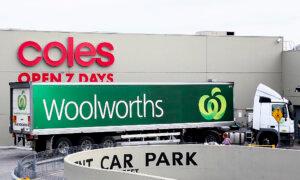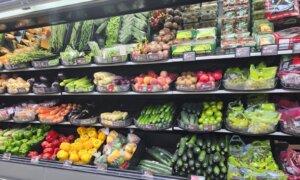ACCC: ALDI, Coles, and Woolworths Ranked as Top Profitable Supermarkets Worldwide
The ACCC suggests that the likelihood of larger chains making a significant impact in Australia is low, and they advise providing more support to smaller players.
The highly anticipated report from the ACCC inquiry into Australian supermarkets has been released, with the competition watchdog determining that Coles, Woolworths, and ALDI are among the most profitable chains globally.
Additionally, the Australian Competition and Consumer Commission (ACCC) found it challenging for new larger competitors to enter the market.
The ACCC reported that the average product margins for the three major chains have risen in the last five financial years, leading to negative outcomes for consumers and suppliers.
ACCC Deputy Chair Mick Keogh stated, “In the past 12 months, the ACCC has gathered data from various sources, including consumer surveys, public submissions, supplier roundtables, internal documents review, and public hearings, to analyze the supermarket data.”
The detailed report includes 20 recommendations focused on enhancing competition within the sector.
ACCC Recommends Community-Owned Stores
The ACCC also proposed government assistance for community-owned stores in remote areas with higher running costs, mandatory pricing information publication for customers, and modifications to zoning regulations to facilitate more supermarket commercial development.
The report highlights the challenges facing larger chains, noting ALDI’s 20-year journey to capture only 9 percent of the Australian market. Meanwhile, Metcash’s IGA stores have been shutting down.
The ACCC proposes simplifying planning and zoning laws to aid existing smaller players and strengthening merger laws.
Since 2019, the two major supermarket chains have acquired approximately 260 retail sites, with only 14 notifications to the ACCC.
Enhanced Transparency on Pricing to Address ‘Shrinkflation’
The report highlights that as consumers prioritize convenience, price-conscious shoppers are increasingly comparing costs.
A key concern raised during the inquiry by consumers was the lack of transparency around price increases, notably the concept of “shrinkflation,” where a product’s size decreases while its price remains the same or increases. To tackle this issue, the ACCC recommends that supermarkets inform consumers when shrinkflation occurs, previously addressed by displaying a “per unit” price for pricing breakdown.
This information should be prominently displayed near the product on shelves and on the product’s webpage,” as stated in the report.
Coles’ Perspective on Inflation Driving Costs
Coles and Woolworths have responded to the ACCC’s supermarket inquiry, defending their pricing strategies while acknowledging the necessity for increased transparency.
A Coles spokesperson mentioned that Australia’s grocery sector is highly competitive and rapidly evolving, with increasing competition from various competitors such as ALDI, Costco, Amazon, and independent retailers.
The spokesperson highlighted rising grocery prices due to higher operating costs like electricity, rent, wages, and transportation, which they do not control but contribute to higher prices.
Coles noted that its net profit margin has remained stable at 2.6 percent over the past five years, equating to around $2.60 earned for every $100 spent—less than 3 cents for each dollar.
While welcoming the ACCC’s transparency enhancement recommendations, Coles cautioned against measures that could potentially increase costs and red tape.
Woolworths’ Current Actions
Woolworths acknowledged the ACCC’s findings, stating that many of the recommendations align with actions the company has already taken.
The company has collaborated with the ACCC to provide insights into their business, sectors, suppliers, supply chains, and the competitive landscape they face.
Recent initiatives by Woolworths include clearer price transparency, the introduction of a Watchlist tool for specials, and an increase in affordable private-label products.
Woolworths recognizes customers’ desire for value and affordability, especially with the rising cost of living.
Chalmers’ Support for ACCC’s Measures
Treasurer Jim Chalmers expressed support for the ACCC report, highlighting the government’s commitment to addressing supermarket dominance.
Chalmers outlined actions already taken by the government, such as making the Food and Grocery Code mandatory, funding the ACCC, and collaborating with states and territories to ease zoning laws for new competitors.
The government is also reforming the Unit Pricing Code to address “shrinkflation” and assisting supplier groups in negotiations with supermarket giants.
Chalmers emphasized the crackdown on supermarkets to promote competition while supporting the ACCC’s recommendations.
Farmers’ Endorsement of the Report
The National Farmers’ Federation (NFF) welcomed the ACCC’s Supermarkets Inquiry Final Report.
NFF President David Jochinke stated that the majority of the report’s recommendations focusing on fresh produce supply chains validate concerns raised by farmers.
Jochinke stressed that the report’s findings confirm long-standing worries about supermarket market power, particularly for fresh produce suppliers.
He emphasized the challenges faced by fresh produce suppliers and the need for increased competition in the market.





